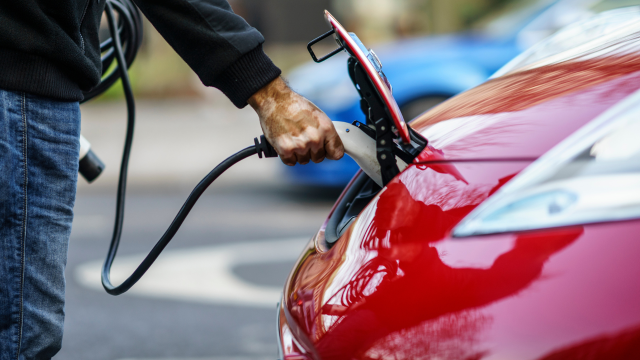The Electric Vehicle Council has released its latest report on Australia’s uptake of EVs. The State of EVs 2022 report goes into electric vehicle uptake across Australia and scores the jurisdictions on their EV policies and support.
According to the report, electric vehicle sales now represent 3.39 per cent of all vehicle sales in Australia. This is up from the Electric Vehicle Council’s estimates in January, where the group reported that electric vehicle sales made up 1.95 per cent of new vehicle sales.
“It’s great to see so much momentum behind EV sales in Australia, but to put our 3.4 per cent in context – Germany sits at 26 per cent, the UK at 19 per cent, and California at 13 per cent. The global average is 8.6 per cent so Australia has a long, long way to come,” said Doctor Jake Whitehead, the head of policy at the Electric Vehicle Council.
“We know from all the research that Australians are keen to get behind the wheel of an EV, but they just aren’t getting the access that other markets get. Because our governments have lagged the world on EV policy, Australia is still something of an afterthought for global EV manufacturers. So Australian consumers have a smaller range of EVs to choose from and they are also being forced to wait for many months or even years to take delivery of new vehicles.”
When analysing the states and territories of Australia, the Electric Vehicle Council said that the ACT is in the lead on EV uptake, with 9.5 per cent of new vehicle sales being EVs. NSW (3.7 per cent), Victoria (3.4 per cent), Queensland (3.3 per cent), Tasmania (3.3 per cent), Western Australia (2.8 per cent) and South Australia (2.3 per cent) followed, with the Northern Territory in last at 0.8 per cent.
In terms of EV-supporting policy, here’s how the Electric Vehicle Council graded Australia’s states and territories:
- ACT: 8/10
- NSW: 8/10
- Queensland: 6/10
- Victoria: 5/10
- South Australia: 4/10
- Northern Territory: 4/10
- Western Australia: 4/10
- Tasmania: 3/10
The Electric Vehicle Council also scored federal EV support at 7/10. If you’d like to see what policies exist in your state, we’ve got a breakdown on that.
Additionally, fast and ultra-fast chargers (usually between 50kW and 350kW) saw a 22 per cent increase across Australia since 2021. According to the report, there are around 350 of these chargers across the country.
Australia has been slow to take up electric vehicles, but the mood is shifting. The federal government has opened up submissions to the Electric Vehicle Strategy and is moving to exclude some EVs from the fringe benefits tax.
“The good news is the new federal government understands the opportunities of EVs and is working on a genuine EV strategy. Although that strategy will need to include a range of measures, high on the list must be fuel efficiency standards,” added Whitehead.
“If Australia does not introduce fuel efficiency standards on par with the EU and the US we will continue to lag the world by a huge margin. Given transport makes up 19 per cent of Australia’s emissions we also can’t say we’re serious about achieving our 2030 emission reduction target without fuel efficiency standards.”
You can read the full report on the Electric Vehicle Council website.
